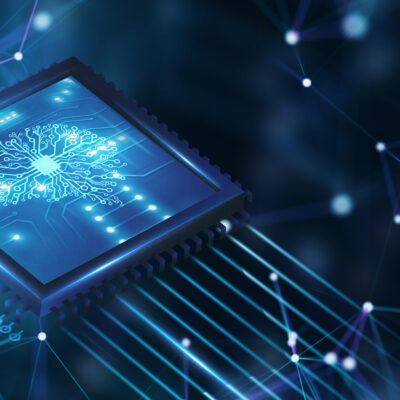On September 26, in Ex Parte Desjardins, the new Director of the USPTO, John Squires, intervened to institute an Appeals Review Panel (ARP) that vacated a § 101 rejection for claims relating to training machine learning models. The panel decision rested on the basis that the invention was an improvement in technology and the claims recited a practical application of the claimed abstract idea. The decision emphasizes the need to evaluate claims in light of any technological improvements to determine eligibility.
The application at issue relates to methods for training machine learning models that involved determining the importance of model parameters for a first task, then training the model on a second task while protecting performance on the first task. The independent claims included the following limitation or a similar variation: “computing . . . , an approximation of a posterior distribution over possible values of the plurality of parameters.”
The Patent Trial and Appeal Board (PTAB) had previously affirmed a rejection of all pending claims as obvious under § 103 and further entered a new ground of rejection under § 101. In the § 101, the PTAB found that the claims recited a mathematical concept and thus an abstract idea. The applicant, DeepMind Technologies Limited, filed a Request for Rehearing, addressing the new ground of rejection. The PTAB denied the request.
The ARP was convened to review the PTAB decision. The ARP found that the claims, when considered as a whole, reflect improvements in the functioning of the machine learning model itself. Specifically, the claims enable the model to learn new tasks in succession while preserving knowledge about previous tasks, using less storage and reducing system complexity. DeepMind’s specification highlighted such technical improvements. The ARP emphasized that such improvements are not merely generic computer implementation but constitute a practical application of the abstract idea. In its analysis, the ARP assessed whether the specification acknowledged technical improvements and whether a claim limitation reflected that improvement.
The decision criticized the PTAB’s overbroad reasoning as essentially equating any machine learning with an unpatentable “algorithm” and the remaining additional elements as “generic computer components,” without adequate explanation. The ARP cautioned that Examiners and panels should not evaluate claims at such a high level of generality. The ARP further cautioned that “Categorically excluding AI innovations from patent protection in the United States jeopardizes America’s leadership in this critical emerging technology.” In countering such broad § 101 grounds of rejection, the ARP decision emphasized that “§§ 102, 103 and 112 are the traditional and appropriate tools to limit patent protection to its proper scope. These statutory provisions should be the focus of examination.”
The Desjardins decision could foreshadow more positive treatment for AI inventions at the USPTO. This decision further underscores the importance of clearly articulating and claiming technological improvements in an application to overcome subject matter eligibility challenges. It also suggests that arguments relating to practical applications of an abstract idea may be given more weight when facing § 101 rejections. In the wake of the decision, arguments relating to technological improvements supporting a practical application may be sufficient to overcome subject matter eligibly hurdles.
For more information on this topic, please contact Fitch Even associate Jacqueline L. Thompson, author of this alert.
Fitch Even IP Alert®
Jacqueline L. Thompson
Jacqueline L. Thompson currently focuses her law practice on patent preparation and prosecution and product clearance and legal opinions. In addition, she supports litigation teams through research and document preparation.
Tagged In: Artificial Intelligence Patent Preparation + Prosecution

